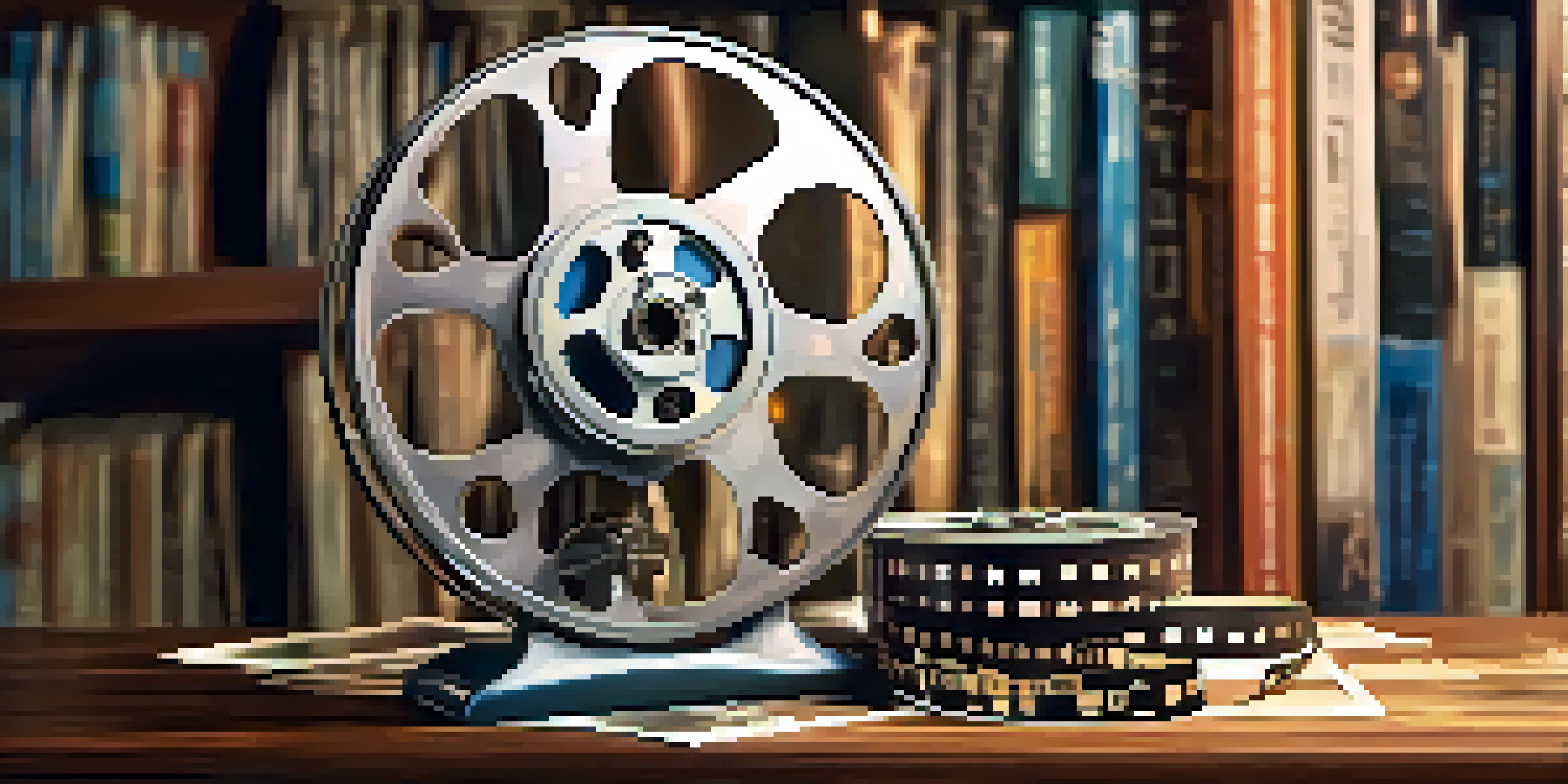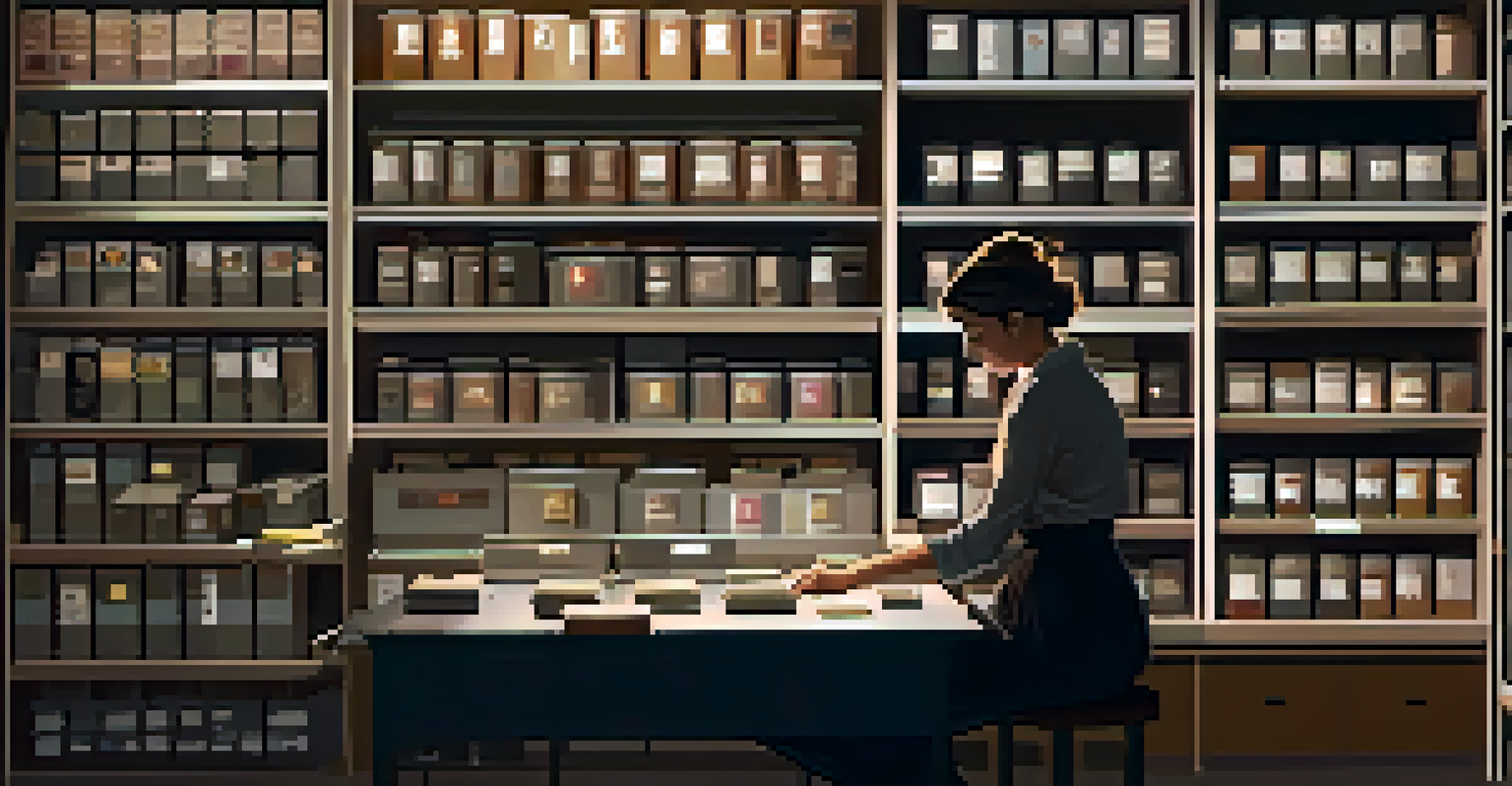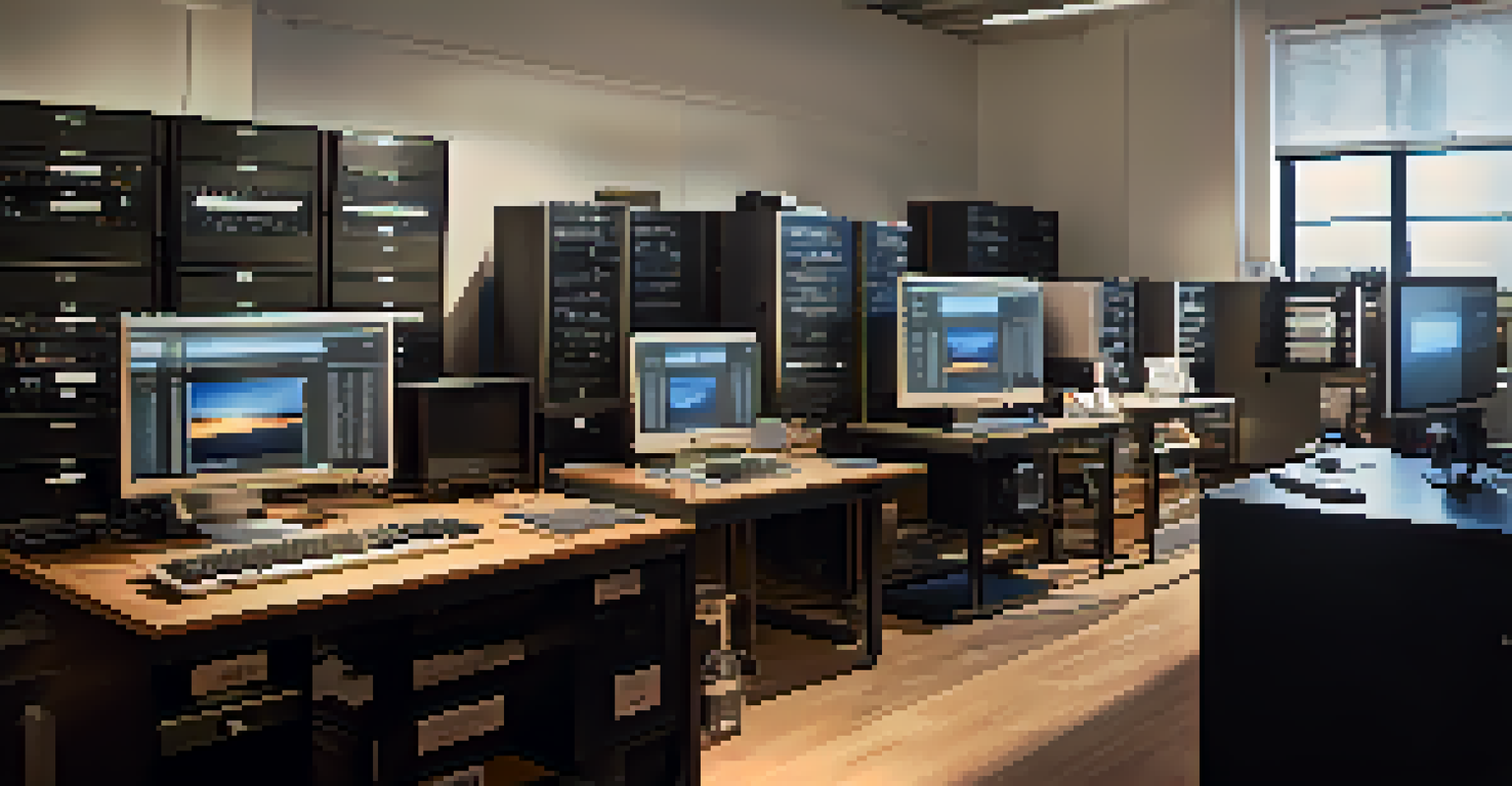The Importance of Archiving: Why Films Need Safe Storage

What is Film Archiving and Why Does it Matter?
Film archiving refers to the process of preserving films for future generations. It involves storing both the physical reels and digital formats in safe environments. This practice is crucial not only for maintaining the integrity of the film but also for protecting the cultural heritage embedded within these works.
Film is a matter of passion, and it's worth preserving.
When we think about our favorite movies, we often overlook the effort that goes into keeping them alive. Archiving ensures that the rich stories, performances, and artistic visions do not fade away with time. Just like a library preserves books, archiving films safeguards our cinematic history.
Imagine if classics like 'Casablanca' or 'The Wizard of Oz' were lost forever due to neglect. Film archiving acts as a protective shield, ensuring that future generations can experience the magic of these films just as we have.
The Risks of Neglecting Film Preservation
Neglecting film preservation can lead to irreversible damage, with films deteriorating due to factors like temperature, humidity, and light exposure. Over time, the physical materials of films can degrade, causing them to become unwatchable. This situation is akin to letting a beautiful painting fade away in direct sunlight.

Moreover, the digital age presents its own set of challenges. As technology evolves, older formats may become obsolete, making it crucial to convert and store films in current formats. If films are not archived properly, they risk becoming silent relics of the past.
Importance of Film Preservation
Film archiving is essential for maintaining our cultural heritage and ensuring future generations can experience classic films.
The loss of a single film can erase an entire narrative from history, impacting not just the film industry but cultural understanding as a whole. Each film is a time capsule, holding stories and perspectives that deserve to be remembered.
Technological Advances in Film Archiving
With advancements in technology, film archiving has become more efficient and effective. Digital preservation techniques allow for high-quality transfers and restorations, breathing new life into older films. This shift is similar to how we’ve moved from physical books to digital libraries, making access easier.
The greatest gift of cinema is its ability to connect us to the past, to see the world through the eyes of others.
New storage solutions, such as cloud storage, provide additional safety, allowing for remote backups that can withstand natural disasters. These innovations ensure that films are not only preserved but also accessible to audiences worldwide.
However, it’s important to remember that technology is just a tool. The human element, including archivists and film historians, plays a crucial role in determining what gets archived and how it is maintained.
The Role of Institutions in Film Archiving
Institutions like libraries, museums, and film archives play a vital role in the preservation of films. They provide the necessary resources and expertise to ensure that films are stored safely and remain accessible. Think of them as guardians of cinematic history, working tirelessly to protect our cultural treasures.
These institutions also engage in community outreach and education, raising awareness about the importance of film preservation. By involving the public, they foster a sense of ownership over our shared cinematic legacy.
Technological Advances Aid Archiving
Modern technology enhances film archiving through improved preservation methods and easier access to films worldwide.
Collaborations with filmmakers, studios, and other organizations can enhance the archiving process. Together, they can create comprehensive strategies to protect not just individual films but entire collections.
The Cultural Significance of Film Archiving
Films are more than just entertainment; they reflect societal values, historical contexts, and artistic expressions. Archiving films allows us to preserve these cultural artifacts for future analysis and appreciation. It’s much like how art galleries display paintings that tell the stories of their time.
By understanding the cultural significance of films, we can better appreciate their impact on society. Archiving ensures that diverse voices and stories are preserved, allowing for a richer understanding of our collective history.
Moreover, films can serve as educational tools, offering insights into different cultures and perspectives. When we archive films, we’re not just preserving stories; we’re safeguarding knowledge.
Challenges Faced in Film Archiving
Despite the importance of film archiving, challenges abound. Funding is often limited, which can hinder preservation efforts. It’s a bit like trying to maintain an old house with a tight budget; repairs often fall by the wayside.
Additionally, the sheer volume of films produced poses a significant challenge for archivists. With thousands of films being created each year, prioritizing which ones to archive can be daunting. This situation highlights the need for clear guidelines and frameworks.
Community Involvement in Archiving
Individuals can support film preservation by engaging with local initiatives and advocating for policy changes to secure funding.
In some cases, there may be disputes over rights and ownership, complicating the archiving process. These legal hurdles can stall preservation efforts and threaten the survival of important films.
How You Can Contribute to Film Archiving
While institutions play a crucial role, individuals can also contribute to film archiving efforts. Simple actions like supporting local film festivals or preservation organizations can make a big difference. Think of it as planting seeds that help grow awareness and appreciation for film preservation.
You can also advocate for policy changes that prioritize funding for film archiving initiatives. By voicing your support, you can help ensure that these efforts receive the attention they deserve.

Lastly, consider educating yourself and others about the importance of preserving films. Sharing knowledge about film history and the archiving process can inspire others to take action and preserve our cinematic heritage.